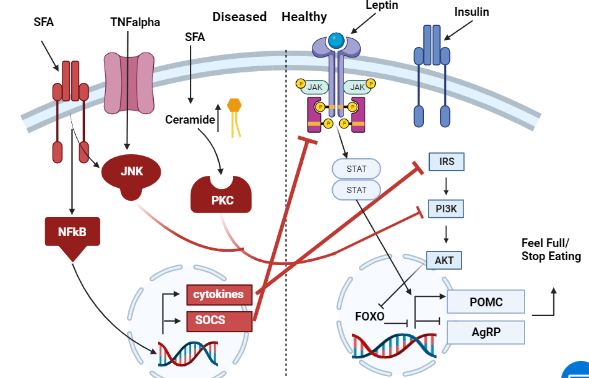This blog post is all about how neurochemistry class meets Concordia’s 5 goals for liberal learning and hones skills developed from other classes.
Install a love for learning

Neurochemistry achieved this goal through a few different avenues. I think the best example is the Friday discussions where we communicate with our classmates about what we learned. Not only did we discuss the relevant pathways and hypothesize novel treatments, but we also related it to topics that interested us. For example, we would discuss how insulin resistance contributes to Alzheimer’s disease mechanistically, and also what we can actively do ourselves to prevent the disease.
Develop foundational skills and transferable intellectual capacities
Wow did Neurochem develop this skill! Reading a research article every week greatly improved my skills as a researcher in many different fields. Additionally, the content we learned is applicable to many different fields including cancer biology, genetics, drug-design, and many more. Understanding the fundamental signaling pathways of life is a valuable skill for many different scientific disciplines.
Develop an understanding of disciplinary, interdisciplinary and intercultural perspectives and their connections
While neurochem was mostly sunshine-and rainbows, sometimes it took on heavy concepts like Alzheimer’s, obesity, autism, and drug addiction. There is a very clear connection between the signaling pathways we learned for these diseases to other scientific disciplines, but interestingly, there are clear connections to social work and public policy.
A very good example of this comes from the obesity paper we read. As you can see in the diagram (figure 1) below, SFA (saturated fatty acids–think butter) and insulin signaling play a role in regulating obesity.

While on the surface, these discoveries don’t seem to directly tie to socioeconomics and public policy, they assuredly do. A lot of the cheapest food consumed by the socioeconomically disadvantaged can cause insulin resistance and is often high in SFA. Furthermore, the connection between socioeconomic status (SES) and race is linked in the USA. Because of this, the implications of this knowledge apply across cultures and between disciplines both social and scientific.
Cultivate an examined cultural, ethical, physical and spiritual self-understanding
Boy oh boy did neurochem cultivate a whole lot of self-understanding. I think there are a few reasons people could be interested in studying neuroscience:
- They are interested in others and want to understand how they work on a more fundamental level. The reasoning for wanting to understand can vary from nefarious to benevolent.
- They are interested in themselves. They are curious about how they make sense of the world from a metacognitive level.
Personally, I’m in it for both reasons but I definitely lean towards #2 more. Because of this, I think neuroscience inherently forces one to examine their cultural, ethical, physical, and spiritual self. In many ways, neuroscience a very philosophical subject with immediate and implications for the student. For example, baring willful ignorance, it’s impossible to avoid examining the role free will (or the lack thereof) and its implications on nearly all social institutions.
Encourage responsible participation in the world
This is where we get super meta. The blogging aspect of this course IS the responsible participation in the world.

Rapid Fire Q and A
Q: What kinds of learning occurred during this semester?
A: Learning from published papers, peers, instructor, and other internet sources.
Q: How do the skills, competencies and knowledge gained in the experience (CAP, blogging) relate to your future goals?
A: I want to go to grad school for a PhD in biochemistry with a neuroscience focus, so this class was pretty perfect for me. Learning all of these fundamental pathways has helped me with research I am currently doing with designing new drugs to treat depression. It has also helped lay a solid foundation as a continue to learn more about neuroscience and neurochemistry in graduate school.
Q: What does learning at a liberal arts institution mean to you?
A: I think of an institution that promotes deep understanding of a certain topic, as well as supporting topics to make for a well educated person. A liberal arts institution develops a curriculum that allows for interdisciplinary connections between an intense area of study and the real world.
Q: If you were to highlight on your resume a skill or competency that you improved upon this semester, what would you be sure to include?
A: I would include the blog posts. I think dissemination of scientific knowledge in an accessible form is important for improving our democracy and the world we live in. I also feel like I really improved my graphic design skills this semester with the artstracts. I have notoriously bad handwriting and drawing/painting skills, so finding a medium I’m not awful in has been exciting.
Conclusion
This course developed the core competencies Concordia considers integral to its education through a variety of ways. Neurochemistry was a very engaging class with topics ranging from cool to mind blowing. My ability to read scientific papers was further refined in this course, as was my ability to draw conclusions form the papers. This class has already improved my research by giving me new ideas on what pathways need adjustment in a variety of illnesses. I think the knowledge gained in this class will carry with me throughout my education and future career.